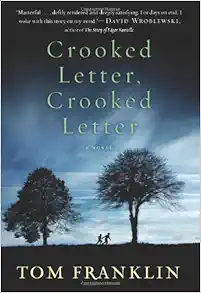Description
From Publishers Weekly This immensely accomplished novel by the author of the Edgar Award-winning short story collection Poachers is based on a real-life feud in the 1890s that pitted the underclass-poor, mostly white sharecroppers-of Clarke County, Ala., against the land-owning gentry who could and did control their fate. But that simple summary does not do justice to the complex and incredibly violent events that shook the community. The seeds of the violent uprising are planted when Macky Burke, a poor, white teenage orphan living with his grandmother, the widow Gates, accidentally shoots local merchant Arch Bedsole during a holdup. Arch's enraged cousin, Quincy "Tooch" Bedsole, a down-at-the-heels farmer, cultivates those seeds with a mixture of resentment, greed and a desire for vengeance. He forms the "Hell-at-the-Breech" gang, made up of criminals and struggling white tenant farmers who but for their guns are nearly as powerless as the former slaves they compete with for work. Hell-at-the-Breech terrorizes Clarke County, exacting frontier justice (and cash) from the exploitative landowners, driving black sharecroppers out of the county and menacing the white farmers who are too law-abiding to join their ranks. Fighting the outbreak of violence is Sheriff Billy Waite, an essentially good man trying to keep the peace and administer justice in a lawless world. Despite an unremitting catalogue of violence, this gory book is a pleasure to read for its clean, unexpected turns of phrase (in a cotton field, "each tuft [is] white as a senator's eyebrow"); the laconic humor of its characters ("Rumors fly out of Mitcham Beat like hair in a catfight"); and vibrant, complex characters who spring from the pages. Franklin may have used history as a starting point, but he imagines the events in human terms, creating a book that transmutes historical fact into something much more powerful, dramatic and compelling.Copyright 2003 Reed Business Information, Inc. --This text refers to an out of print or unavailable edition of this title. From Booklist *Starred Review* What starts as an apparent accident leads to a feudal killing spree in Franklin's accomplished account of a true story he heard while growing up in Alabama. When teenage brothers William and Mack Burke go out one night in 1897 to rob a passing horseman to get money for a whore, younger Mack's revolver accidentally discharges, hitting Arch Bedsole, a well-liked merchant and aspiring politician, as the boys run off and swear silence. But Arch's cousin, Tooch Bedsole, contends that men from an adjoining town are responsible. To avenge the killing he forms an unholy alliance of his Mitcham Beat countrymen, naming it Hell-at-the-Breech and targeting first those local men who refuse to sign its blood oath. It's up to Clarke County sheriff Billy Waite, who's feeling all of his 60 years and drinking too much, to stop the killing and curb the posse out to get the alliance. This is not a story for the faint of heart or stomach, with descriptions of violence so graphic and vivid as to seem cinematic. Yet Franklin, whose award-winning Poachers (2000) elicited comparisons to Faulkner, is a splendid stylist who explores moral issues and stocks this tale with memorable (if mostly unpleasant) characters, spinning it seemingly effortlessly to a final surprise twist. This is historical fiction at its best. Michele Leber Copyright © American Library Association. All rights reserved --This text refers to an out of print or unavailable edition of this title. Tom Franklin is the New York Times bestselling author of Crooked Letter, Crooked Letter , which won the Los Angeles Times Book Prize and the Crime Writers' Association's Gold Dagger Award. His previous works include Poachers , Hell at the Breech , and Smonk . He teaches in the University of Mississippi's MFA program. --This text refers to the paperback edition. FROM THE PRAISE FOR HELL AT THE BREECH:'Beautifully written and potent.' Daniel Woodrell, Washington Post 'A literary knockout. Franklin has cleverly woven history and fiction. Hell at the Breech is an impressive novel that should catapult Franklin into the big leagues.' USA Today'Such exquisite prose, such depth of character and depth of emotion that you feel swept up in a terrible beauty. Hell at the Breech bears comparison only with other great novels, and it ensures a place for Tom Franklin in the highest ranks of our country's new writers.' Dennis Lehane'The most extraordinary first novel to come out of the South since Charles Frazier's Cold Mountain ... hypnotically captivating.' Orlando Sentinel'Franklin evokes time and place with language of eloquence and fire, and his journey through the evils men do leads down the old dark ways of the heart.' William GayFROM THE PRAISE FOR POACHERS: 'I am amazed by Franklin's power. I'm reminded, by the evocative strength of the prose and the relentlessness of the imagination, of William Faulkner.' Philip Roth'It's as if the author kidnapped Raymond Carver's characters and set them loose in the Deep South.' New York Times Book Review'Marvellous ... Franklin writes beautifully with an unsparing, detached eye.' The Times --This text refers to an alternate kindle_edition edition. Read more
Features & Highlights
- In 1897, an aspiring politician is mysteriously murdered in the rural area of Alabama known as Mitcham Beat. His outraged friends -- —mostly poor cotton farmers -- form a secret society, Hell-at-the-Breech, to punish the townspeople they believe responsible. The hooded members wage a bloody year-long campaign of terror that culminates in a massacre where the innocent suffer alongside the guilty. Caught in the maelstrom of the Mitcham war are four people: the aging sheriff sympathetic to both sides; the widowed midwife who delivered nearly every member of Hell-at-the-Breech; a ruthless detective who wages his own war against the gang; and a young store clerk who harbors a terrible secret.
- Based on incidents that occurred a few miles from the author's childhood home,
- Hell at the Breech
- chronicles the events of dark days that led the people involved to discover their capacity for good, evil, or for both.





